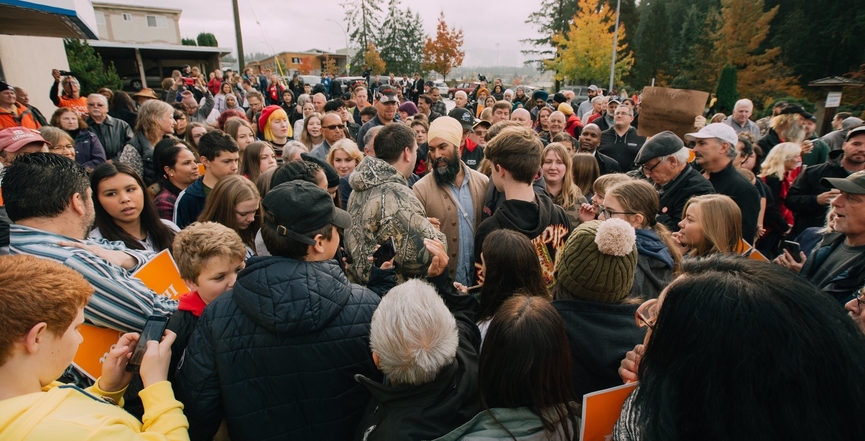A minority Parliament creates opportunities for opposition parties.
The biggest — overthrowing the government in a vote of no confidence — is not on the agenda as Parliament reconvened on January 27.
It would take the combined votes of 121 Conservatives and 32 Bloc members, plus the 24-member NDP caucus to defeat the government in the House of Commons.
With a leadership race underway, the official Opposition Conservatives have good reason to wait before forcing an election.
The Bloc Québécois need to demonstrate their value to Quebec voters before precipitating a return to the polls. Unless given a good reason, the Bloc may be unwilling to shoulder responsibility for an election before its scheduled date in four years.
A simple majority of the 338-member House of Commons (not including the Speaker) equals 169 votes, so with 24 votes to add to the 157 Liberal MPs, the NDP has the power to keep the government in place.
In a minority Parliament, the government will find itself outnumbered on parliamentary committees. Being represented, even with one or two members, opens the door for the NDP to raise familiar issues such as pharmacare, minimum wage increases, labour rights, and improving social wellbeing by re-distributing income from rich to poor, pushing the government to do better.
The NDP should be looking to every occasion to bring civil society voices to Parliament. Public policy through closed-doors lobbying of the Prime Minister’s Office was brought to Ottawa by the Queen’s Park advisors who Justin Trudeau put in charge of his office as thanks for helping him get elected — a rookie mistake if ever there was one.
Opening up the policy process requires that groups — such as promoters of the Teck oil-sands project in Alberta — defend their interests in the company of environmental activists. Fossil fuel producers should explain how the fate of the planet can be reconciled with continued expansion of greenhouse gas-emitting oil sands.
The climate emergency has energized youth all over the world. From the outset, the role of the NDP in a minority Parliament is surely to amplify those concerned and angry voices, and make sure they are heard. The NDP cannot be afraid to raise at every occasion the issue that defines our times.
MP Jack Harris, the NDP’s public safety critic, was quick to demand answers for how RCMP commanders could have issued “lethal overwatch” orders (meaning shoot if necessary) to armed officers who were enforcing an injunction against the Wet’suwet’en protesters protecting ancestral land against the construction of the Coastal GasLink pipeline in B.C.
With the RCMP reverting to its colonial role of restricting Indigenous peoples’ access to their own territories, the NDP should be following the lead of Harris and Skeena-Bulkley Valley MP Taylor Bachrach — who met with the protestors — and agitating to get Wet’suwet’en hereditary chiefs before a parliamentary committee.
It is important to show how the Coastal GasLink pipeline project violates the 1997 Delgamuukw ruling of the Supreme Court, which established that aboriginal title was not extinguished when B.C. joined Confederation in 1871 and became subject to Canadian laws and statutes.
Yes, the Coastal GasLink project benefits from support from the B.C. NDP government, as well as the federal Liberals. Alberta’s public pension manager bought a majority stake in the Coastal GasLink project from TC Energy Corp., no doubt as a result of political direction from Premier Jason Kenney.
However, in a minority situation, being afraid to cross provincial premiers or party leaders will cost federal NDP Leader Jagmeet Singh and his party.
Reconciliation with Indigenous peoples must mean rejecting resource-extraction projects opposed by Indigenous communities, or it will remain a meaningless slogan. Fearlessly asserting hard-won rights should not be an optional position for the NDP caucus, and leader.
In a pointed tweet, former NDP MP Svend Robinson addressed Singh: “As NDP Leader and Critic on Crown-Indigenous Relations we look to you for respect for the leadership of Wet’suwet’en hereditary chiefs on their unceded land. Oppose fracked LNG gas pipeline and federal subsidies to this project which ignores #ClimateEmergency.”
Duncan Cameron is president emeritus of rabble.ca and writes a weekly column on politics and current affairs.
Image: Jagmeet Singh/Twitter



